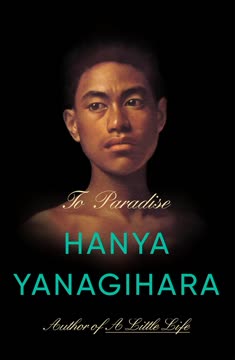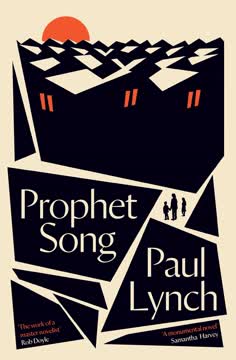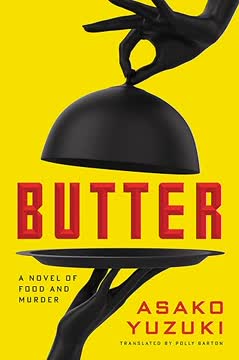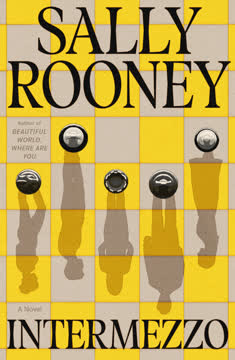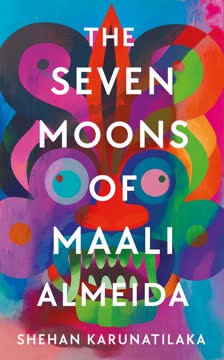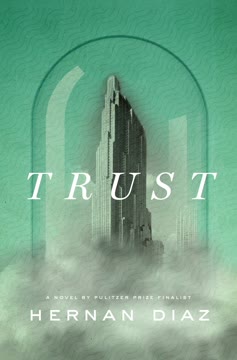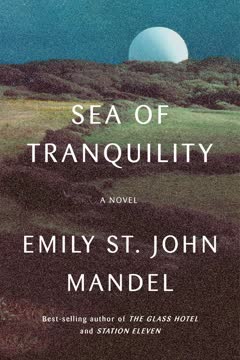Plot Summary
David's Walk and Reflection
David Bingham, a young man of privilege, enjoys solitary walks around Washington Square, reflecting on his life and the expectations placed upon him. These walks offer a moment of peace before he returns to the complexities of his family life, where societal norms and family expectations weigh heavily on him.
Inheritance and Family Dynamics
At a family dinner, David's grandfather, Nathaniel Bingham, reveals the division of his estate. The siblings react with mixed emotions, as the inheritance symbolizes both privilege and the weight of family expectations. This moment sets the stage for David's internal conflict between duty and desire.
Secret Love and Societal Pressure
David harbors a secret love for Edward Bishop, a music teacher. Their relationship defies societal norms, representing David's struggle between personal desires and external pressures. This love affair is a catalyst for David's journey toward self-discovery and authenticity.
Marriage Proposal and Dilemma
David receives a marriage proposal from Charles Griffith, a wealthy widower. The proposal offers stability but forces David to confront his true feelings and the reality of his desires. This moment highlights the tension between security and passion, tradition and independence.
Choosing Love Over Security
After much deliberation, David decides to leave his privileged life behind to be with Edward. This decision marks a declaration of independence and a pursuit of personal happiness, despite the potential consequences and loss of familial approval.
Confrontation and Departure
In a tense confrontation, David informs his grandfather Nathaniel of his decision to leave. This moment symbolizes a break from family expectations and the beginning of a new chapter in David's life, as he chooses love and authenticity over duty.
Struggle for Autonomy
David grapples with his role in Charles's life, feeling more like a fixture than a partner. This struggle for autonomy is compounded by societal expectations and the shadow of his family's legacy, highlighting his desire for self-worth and identity.
Peter's Farewell and Legacy
As Peter prepares for his assisted death, a farewell party becomes a somber reflection on life and legacy. The event underscores the inevitability of death and the desire to leave a meaningful impact, contrasting Peter's calm acceptance with the guests' discomfort.
Secrets and Silent Understandings
Charlie's marriage is built on mutual respect and unspoken agreements, despite her husband's secretive visits to a mysterious house. This dynamic reflects the complexities of love and duty in a world governed by societal norms.
A New Friend Named David
Charlie meets David (Charlie's Friend), whose easygoing nature offers her a sense of belonging and companionship. Their friendship challenges Charlie to embrace new experiences and see the world differently, providing solace in her loneliness.
Confronting the Unseen Threat
At the lab where Charlie works, the discovery of a new disease poses a significant threat. This looming danger forces Charlie to confront the fragility of life and the importance of human connection, as society teeters on the brink of change.
A Secretive Plan Unfolds
Charlie learns from David (Charlie's Friend) that she must prepare to leave due to an impending deadly illness. Despite her doubts, the promise of freedom and a new life draws her in, though she struggles with the idea of leaving her husband behind.
A Husband's Hidden Life
Charlie discovers her husband, Edward, is gravely ill and has been secretly visiting a house where he is cared for by his lover, Fritz. This revelation forces Charlie to reevaluate her understanding of love and loyalty.
A Risky Escape Attempt
With Edward gone, Charlie prepares to leave for New Britain. The journey is fraught with danger, but she is determined to honor her grandfather's wish for her to find a better life, clinging to the hope of a new beginning.
A New Beginning Beckons
As Charlie sets off on the boat, she reflects on the life she is leaving behind and the uncertain future ahead. The promise of freedom and the chance to live without fear drive her forward, guided by David's support and her grandfather's memory.
Characters
David Bingham
David is a young man from a wealthy family, struggling with the expectations placed upon him. His love for Edward represents a rebellion against societal norms and a desire for personal fulfillment. David's journey is one of self-discovery and the pursuit of happiness, even at the cost of familial ties.
Nathaniel Bingham
Nathaniel is David's grandfather, deeply invested in the family's legacy. His decisions are guided by duty and tradition, often clashing with David's desires for independence. Their relationship is complex, marked by love and disappointment.
Edward Bishop
Edward is a music teacher and David's secret love, embodying the freedom and passion David yearns for. Their relationship challenges David to consider what truly matters, serving as a catalyst for his decision to pursue a life of authenticity.
Charles Griffith
Charles is a wealthy widower who proposes marriage to David, offering security and respectability. His proposal forces David to confront his true feelings, highlighting the contrast between security and passion.
Charlie
Charlie is a woman caught between the life she knows and the promise of a new beginning. Her journey is marked by loss, love, and the search for freedom, guided by the memory of her grandfather and the mysterious David.
Peter
Peter is a close friend facing his impending death with acceptance. His farewell party serves as a reflection on mortality and legacy, highlighting the human desire for connection and the complexities of saying goodbye.
Fritz
Fritz is Edward's lover, who cares for him in his final days. His love for Edward is evident, and he shares a bond with Charlie through their mutual loss, highlighting the hidden complexities of Edward's life.
David (Charlie's Friend)
David is a new friend who brings joy and companionship to Charlie's life. His presence challenges Charlie to see the world differently and embrace new experiences, offering her a sense of belonging.
Charlie's Husband
Charlie's husband is a man of few words, bound by the expectations of their arranged marriage. His secretive visits to the house on Bethune Street reveal a hidden world, reflecting the complexities of love and duty.
Grandfather
Charlie's grandfather is a significant figure in her life, whose teachings and love continue to guide her. His influence is a source of strength and comfort, shaping Charlie's understanding of resilience and kindness.
Plot Devices
Inheritance and Family Expectations
The inheritance David receives symbolizes the weight of family expectations and the pressure to conform. It serves as a catalyst for David's internal conflict, shaping the characters' choices and relationships.
Secret Love and Societal Norms
David's secret relationship with Edward challenges societal norms, representing the tension between personal desires and external pressures. It prompts David to pursue a life of authenticity and love.
Marriage Proposal and Decision
Charles's proposal forces David to confront his feelings and make a difficult decision, highlighting the contrast between security and passion, tradition and independence.
The House on Bethune Street
The house represents the secrets and mysteries in Charlie's life, prompting her to question the nature of her marriage and the secrets that bind them.
Friendship and Connection
Charlie's friendship with David offers her a sense of belonging and joy, challenging her to embrace new experiences and see the world through a different lens.
The New Disease
The discovery of a new disease symbolizes the fragility of life and the potential for societal upheaval, serving as a backdrop for Charlie's personal journey.
Secretive Escape Plan
The escape plan orchestrated by David symbolizes the hope of a new life and the risks involved in seeking freedom, driving the narrative forward.
Hidden Illness and Love
Edward's secret illness and love for Fritz reveal the complexities of his character, forcing Charlie to reevaluate her understanding of love and loyalty.
Analysis
"To Paradise" by Hanya Yanagihara is a profound exploration of identity, societal expectations, and the pursuit of personal fulfillment. Through the intertwined stories of David and Charlie, the novel delves into the complexities of love, duty, and the search for autonomy. The narrative challenges readers to consider the tension between inherited obligations and the desire for individuality, highlighting the transformative power of love and the courage required to defy societal norms. The book's exploration of legacy, mortality, and the human need for connection offers a poignant reflection on the enduring impact of family history and the quest for a life of authenticity and freedom.
Last updated:
FAQ
Synopsis & Basic Details
What is To Paradise about?
- Three Alternate Americas: To Paradise presents three distinct narratives set in alternate versions of America across different centuries: 1893, 1993, and 2093. Each story explores themes of love, freedom, and the elusive nature of utopia through characters who often share names and face similar dilemmas, but in vastly different societal and political landscapes.
- Quest for Belonging: The novel follows individuals grappling with societal expectations, personal desires, and the search for a place where they can truly belong and be free. From a privileged heir in a Free State to a Hawaiian royal navigating a post-colonial world, and a lab technician in a dystopian future, each protagonist seeks a personal paradise.
- Intergenerational Echoes: While seemingly disparate, the stories are deeply interconnected through recurring motifs, character archetypes, and thematic echoes, inviting readers to draw parallels and contemplate how history, choice, and circumstance shape human lives and the pursuit of an ideal society.
Why should I read To Paradise?
- Rich Thematic Depth: Readers seeking a profound exploration of freedom, love, and the American experiment will find To Paradise deeply rewarding. The novel challenges conventional notions of utopia, revealing the inherent costs and compromises in any attempt to create a perfect society, making it a compelling read for those interested in philosophical fiction.
- Masterful World-Building: Hanya Yanagihara crafts three intricate and immersive worlds, each with its own unique social structures, political systems, and cultural nuances. From the Free States of 1893 to a pandemic-ravaged 2093, the detailed settings provide a rich backdrop for the characters' emotional journeys, offering a truly expansive reading experience.
- Emotional Resonance & Interpretive Layers: Beyond its intellectual scope, the book delivers powerful emotional narratives that delve into loneliness, desire, and the complexities of human relationships. Its ambiguous elements and recurring symbols invite active reader participation, sparking discussion and offering new insights with each re-reading, making it a favorite for book club discussions and literary analysis.
What is the background of To Paradise?
- Alternate American Histories: The novel is set against three distinct alternate histories of America. Book I imagines a 19th-century "Free States" where same-sex marriage is legal and slavery is abolished, but racial hierarchies persist. Book II explores a post-colonial Hawaii in the late 20th century, grappling with its identity after American annexation. Book III depicts a dystopian, pandemic-ridden future where New York is divided into zones, and personal freedoms are severely curtailed for public health.
- Political and Social Experimentation: Each era reflects a different societal experiment, from the utopian ideals of the Free States' founders to the Hawaiian sovereignty movement and the authoritarian control of a pandemic-stricken future. These settings highlight the author's exploration of how political ideologies, historical events, and scientific advancements shape individual lives and collective destinies.
- Geographical and Cultural Specificity: The settings are not merely backdrops but active forces in the characters' lives. Washington Square in Book I symbolizes inherited privilege and confinement, while Lipo-wao-nahele in Book II represents a lost paradise and a struggle for indigenous identity. Zone Eight in Book III embodies the stark realities of survival and state control, emphasizing the profound impact of environment on human experience.
What are the most memorable quotes in To Paradise?
- "For freedom is dignity, and dignity freedom." (Book I, Chapter XIII): This quote, part of the Free States' motto, encapsulates the foundational ideal of the first narrative. It highlights the core tension between individual liberty and societal order, a theme that is subtly questioned and reinterpreted across all three books, especially as characters grapple with the true meaning of freedom in their respective worlds.
- "America is a country with sin at its heart." (Book II, Part I, Hale Kealoha speech): Uttered by Bethesda, this powerful statement cuts to the core of the second narrative's critique of American colonialism and its lasting impact on Hawaii. It serves as a recurring motif, echoing through the characters' struggles for identity and justice, and foreshadowing the moral compromises made in the later dystopian future.
- "If we have lived, it is because we are worse than we ever believed ourselves to be, not better." (Book III, Part VI, Charles's letter): This chilling reflection from Charles in the third book reveals the profound moral degradation and self-deception required for survival in a totalitarian, pandemic-ravaged world. It's a stark commentary on human nature under extreme duress, challenging the reader to confront the dark side of resilience and the cost of existence.
What writing style, narrative choices, and literary techniques does Hanya Yanagihara use?
- Epistolary and Multi-Perspective Narrative: Yanagihara employs a complex narrative structure, primarily using third-person limited perspectives that shift between characters within each book, and an epistolary format (letters, emails) in Books II and III. This choice allows for deep psychological insight into individual experiences while simultaneously building a panoramic view of the evolving societies, enhancing the novel's thematic richness.
- Repetition and Variation: A key literary technique is the repetition of character names, relationships, and plot points across the three distinct timelines. This creates a sense of thematic echo and structural resonance, prompting readers to compare and contrast the characters' fates and choices, and to ponder the cyclical nature of history and human behavior. For example, the name "David" appears in all three books, often associated with a struggle for identity or a pivotal choice.
- Subtle Foreshadowing and Symbolism: The author masterfully weaves in subtle hints and symbolic elements that connect the narratives. Recurring motifs like specific plants (ginger, acacia, mulberry), colors (scarlet, gold), and objects (rings, houses, specific foods) gain layered meaning across the centuries, enriching the reader's interpretive experience and deepening the novel's exploration of memory, legacy, and the search for paradise.
Hidden Details & Subtle Connections
What are some minor details that add significant meaning?
- The Washington Square Arch's Symbolism: In Book I, David's grandfather largely pays for the Washington Square Arch to be rebuilt in marble, "who had bristled at the idea of being upstaged by a minor businessman who lived across Fifth Avenue from them, in a house not quite as stately." This seemingly minor detail about family pride and competition subtly foreshadows the later narrative's focus on legacy, status, and the lengths to which individuals and states will go to assert their dominance, even in seemingly trivial matters.
- Recurring Plant Motifs: The repeated mention of specific plants like ginger, acacia, and mulberry trees carries symbolic weight. In Book I, candied ginger on David's syllabub connects to colonial exploitation. In Book II, Edward and David's "Lipo-wao-nahele" fantasy involves planting trees, symbolizing their attempt to create a new, authentic paradise. In Book III, the acacia trees around the Farm are a rare sight of natural beauty in a controlled world, hinting at nature's resilience and the artificiality of their existence.
- The Significance of Names: Character names are often reused or subtly altered across the timelines, creating a sense of fated repetition. For instance, "Edward Bishop" in Book I is a charming but potentially manipulative figure, while "Edward" in Book II is a passionate but flawed leader. "Charlie" in Book III is a young woman named after her grandfather, Charles, who is also a "Charlie" in Book IV (the older Charles's perspective). This mirroring suggests that while circumstances change, certain human archetypes and struggles persist, inviting a deeper
character analysis.
What are some subtle foreshadowing and callbacks?
- The "Paradise" of Lipo-wao-nahele: In Book I, David's grandfather calls the Hudson cottage "Frog's Pond Way," and later, Edward's family's land in Hawaii is called "Lipo-wao-nahele," translated as "Forest of Paradise." This recurring concept of a personal or collective paradise, often flawed or unattainable, subtly foreshadows the eventual disillusionment and compromises faced by characters in their pursuit of an ideal life, linking the utopian aspirations of different eras.
- The Motif of "Being Watched": In Book I, David feels "strangely elsewhere, as if floating above the room" at parties, a subtle hint at his detachment and perhaps a foreshadowing of the pervasive surveillance in Book III. In Book III, the constant presence of "Flies" (drones) and monitoring devices explicitly fulfills this motif, suggesting that the desire for privacy and freedom from observation is a timeless human struggle, regardless of the era.
- Echoes of Illness and Confinement: David's "confinements" in Book I, described as periods of withdrawal and mental distress, subtly foreshadow the widespread illnesses and forced quarantines of Book III. The description of his room as a "sanctuary" that later feels "oppressive" mirrors the complex relationship characters in the future have with their controlled environments, highlighting the cyclical nature of human vulnerability and the search for safety. This offers a deeper
themes in To Paradise analysis.
What are some unexpected character connections?
- Norris's Enduring Loyalty: In Book I, Norris is Nathaniel Bingham's discreet secretary, privy to family secrets. In Book II, Norris is Aubrey's husband, a wealthy and influential figure. In Book III, Norris is again a loyal butler to Aubrey. This consistent presence, often in a supportive or observant role, suggests a deeper, almost timeless loyalty that transcends social status and even historical eras, hinting at the enduring human need for steadfast companionship.
- The "Other Grandfather": In Book III, Charlie's grandfather (Charles) mentions his "other grandfather," the one to whom he is genetically related, who died in '66. This is a subtle callback to the Hawaiian David's father in Book II, who also died in '66 and was genetically related to the Hawaiian David. This connection reinforces the idea of inherited traits and destinies, suggesting a lineage of individuals grappling with similar challenges across different timelines, adding a layer to
character motivations explained. - The Role of "The Light": In Book III, David (Charlie's father) is a member of "The Light," an anti-government group. This organization, dedicated to "revealing the truth of state manipulation," echoes the earlier narratives' themes of rebellion against oppressive systems, whether it's the Free States' arranged marriages or the colonial powers in Hawaii. It suggests a recurring human impulse to resist perceived injustices, even when the methods are flawed or dangerous.
Who are the most significant supporting characters?
- Adams, the Butler: Adams, appearing in Book I and Book II (as Charles's butler), embodies the quiet, enduring presence of domestic staff who witness the intimate lives of their employers. His subtle disapproval of David's choices in Book I and his deep loyalty to Charles in Book II highlight the unspoken power dynamics and emotional complexities within privileged households, offering a nuanced perspective on class and service.
- Frances Holson, the Family Attorney: Frances, in Book I, is Nathaniel Bingham's attorney, arranging marriages and managing family affairs. In Book III, Frances Holson is the mother of Ezra and Hiram, the boys Charles tutors, who tragically die. This recurring name, associated with legal and familial structures, underscores the enduring influence of institutions and the often-unseen human cost of societal systems, providing a deeper
To Paradise analysisof systemic impact. - Peter, the Confidant: Peter, John's husband in Book I, and Charles's dying friend in Book II, serves as a crucial confidant and sounding board for the protagonists. His role as a listener and a source of wisdom, particularly in the face of mortality, highlights the importance of genuine connection and emotional honesty in navigating life's profound challenges, offering insight into
relationship dynamics in To Paradise.
Psychological, Emotional, & Relational Analysis
What are some unspoken motivations of the characters?
- David Bingham's Fear of Inadequacy: In Book I, David's initial reluctance to accept Charles's proposal, despite his grandfather's urging, stems from a deep-seated fear of his own perceived deficiencies and a desire to prove his worth beyond his family name. His infatuation with Edward, a "self-made" man, is partly driven by a yearning for a life where his identity is earned, not inherited, revealing a core
David Bingham motivationto escape the shadow of his privilege. - Charles Griffith's Need for Control: In Book II, Charles's meticulous planning, from dinner menus to Peter's assisted death, and his desire to "fix" David's life, reveal a profound need for control in a world he perceives as chaotic and unpredictable. His generosity, while genuine, is also a mechanism to assert influence and maintain order, stemming from his own experiences with loss and the desire to protect those he cares for, offering a deeper
Charles Griffith analysis. - Charlie's Husband's Quest for Meaning: In Book III, Charlie's husband, Edward, despite his quiet demeanor, is driven by a desperate need for purpose and recognition after his family's downfall. His secret life and involvement in the underground network are not just acts of rebellion but a search for a community and a cause that validates his existence, providing a poignant
Edward Bishop motivationbeyond his dutiful facade.
What psychological complexities do the characters exhibit?
- The Burden of Legacy and Identity: Characters across all three books grapple with the psychological weight of their family names and inherited histories. David (Book I) feels his name is a "prison," while the Hawaiian David (Book II) struggles with the expectations of royalty. Charlie (Book III) is defined by her grandfather's controversial legacy. This constant negotiation between personal identity and inherited roles creates deep internal conflict, exploring
themes in To Paradiserelated to self-acceptance and societal pressure. - Self-Deception as a Coping Mechanism: Many characters engage in self-deception to navigate difficult realities. David (Book I) initially ignores Edward's potential flaws, while the Hawaiian David (Book II) allows himself to believe in Lipo-wao-nahele despite its obvious impracticality. Charles (Book III) pretends his disease is not affecting him. This psychological complexity highlights how individuals construct comforting fictions to cope with fear, loss, and the harshness of their worlds, offering a nuanced
psychological analysis of To Paradise characters. - The Paradox of Protection: The desire to protect loved ones often leads to morally ambiguous choices. Nathaniel Bingham (Book I) tries to protect David from heartbreak by concealing his past, while Charles (Book III) makes difficult decisions regarding the camps to protect his family. These actions, born of love, often result in unintended consequences, forcing characters to confront the ethical dilemmas of their protective instincts and the blurred lines between care and control.
What are the major emotional turning points?
- David's Reckless Surrender to Love (Book I): A pivotal emotional shift occurs when David, after years of feeling "deficient" and "unloved," fully embraces his infatuation with Edward. His decision to leave Washington Square is not just a plot point but an emotional explosion, a "reckless, wild" act driven by the intoxicating relief that "There was nothing wrong with him after all." This marks his transition from passive acceptance to active pursuit of personal happiness, a key
emotional turning point in To Paradise. - Hawaiian David's Disillusionment with Lipo-wao-nahele (Book II): The moment David's father (Kawika) realizes the degradation of Lipo-wao-nahele, seeing it as "unremarkable piece of scrubby land littered with ugly debris," is a profound emotional collapse. His earlier belief in Edward's vision crumbles, replaced by the painful recognition of his own weakness and complicity in a "make-believe" paradise. This disillusionment is a turning point, forcing him to confront his failures as a father and a man, central to
Kawika's emotional journey. - Charlie's Acceptance of Her Husband's Secret Life (Book III): When Charlie discovers Edward's secret lover, Fritz, and his impending death, her initial shock gives way to a complex mix of sorrow, understanding, and a quiet acceptance of their unconventional love. Her decision to help Fritz care for Edward, and to give Fritz Edward's notes, signifies an emotional maturity and a profound act of empathy, transcending societal norms and personal expectations, offering a deep
relationship analysis in To Paradise.
How do relationship dynamics evolve?
- From Patriarchal Control to Individual Autonomy (Book I): David's relationship with his grandfather, Nathaniel, evolves from one of unquestioning obedience to open defiance. Nathaniel's attempts to control David's life, including his marriage, are ultimately rejected as David chooses Edward. This shift highlights the struggle for individual autonomy against the backdrop of inherited power and tradition, a core
relationship dynamic in To Paradise. - The Shifting Sands of Friendship and Love (Book II): The relationship between the Hawaiian David and Edward transforms from childhood friendship to a complex, co-dependent bond centered around the fantasy of Lipo-wao-nahele. David's initial admiration for Edward's certainty eventually gives way to a realization of Edward's manipulative tendencies, leading to a painful separation. This illustrates how shared dreams can both unite and ultimately divide, impacting
character relationships in To Paradise. - Marriage as a Shield and a Compromise (Book III): Charlie's marriage to Edward is initially a pragmatic arrangement for safety and survival in a dystopian world. However, it evolves into a relationship of quiet companionship and mutual, if unspoken, understanding. The revelation of Edward's secret lover, Fritz, further complicates this, forcing Charlie to confront the compromises inherent in their union and the different forms love can take, providing a rich
To Paradise relationship analysis.
Interpretation & Debate
Which parts of the story remain ambiguous or open-ended?
- The Nature of "Paradise" Itself: The title To Paradise is inherently ambiguous, as each book presents a different, often flawed, version of an ideal. Whether paradise is a utopian Free State, a reclaimed Hawaiian kingdom, or a personal sanctuary from a dystopian world, the novel leaves it open to interpretation whether any character truly reaches it, or if it's an ever-receding ideal. This ambiguity is central to
To Paradise meaningand invites ongoing reader debate. - The Reliability of Narrative and Memory: Especially in Book II and III, characters' memories and accounts are often questioned or contradicted. The Hawaiian David's recollections of Edward, or Charles's (Book III) fragmented memories of his past, suggest that truth is subjective and shaped by personal experience and trauma. The reader is left to piece together the "real" story, debating the extent to which any narrative can be fully trusted, a key aspect of
To Paradise literary analysis. - The Ultimate Fate of the Characters: While some characters' immediate fates are revealed, the long-term consequences of their choices, particularly for those who seek to escape or rebel, remain largely open-ended. For instance, Charlie's journey to New Britain in Book III is presented as a hopeful escape, but the true nature of this "paradise" is left to the reader's imagination, prompting questions about whether true freedom is ever attainable, a common point of
To Paradise discussion questions.
What are some debatable, controversial scenes or moments in To Paradise?
- Nathaniel Bingham's "Protection" of David (Book I): Nathaniel's decision to withhold Edward's letters from David, and his fierce opposition to David's relationship, is a controversial moment. While framed as an act of protection, it can be debated whether this paternalistic control ultimately harms David more than it helps, stifling his autonomy and leading to greater emotional turmoil. This raises questions about the ethics of parental intervention and the definition of love, a key
To Paradise ethical dilemma. - The Justification of the Relocation Centers (Book III): Charles's (Book III) defense of the "containment centers" and his role in their creation is a highly controversial aspect of the novel. His argument that such measures are necessary for public safety, even at the cost of individual liberties and human dignity, forces readers to confront difficult ethical questions about utilitarianism versus human rights, and the moral compromises made in times of crisis. This is a central point for
To Paradise controversial scenesdiscussions. - Edward's Manipulation in Lipo-wao-nahele (Book II): Edward's gradual manipulation of the Hawaiian David, convincing him to abandon his family and embrace a fabricated "paradise" in Lipo-wao-nahele, is a debatable aspect of their relationship. While Edward's passion is undeniable, his actions lead to David's isolation and eventual decline. This raises questions about the nature of leadership, the dangers of blind faith, and the fine line between inspiration and exploitation, offering rich material for
Edward Bishop character analysis.
To Paradise Ending Explained: How It Ends & What It Means
- Charlie's Escape to an Uncertain "Paradise": In Book III, Charlie escapes the dystopian Zone Eight after her husband, Edward, dies. Guided by David (her friend, a New Britain agent), she embarks on a boat journey to Iceland, then to New Britain, a country David describes as a place of freedom. The ending is not a definitive arrival in a perfect utopia but a hopeful departure towards an unknown future, leaving the reader to ponder the true nature of this promised land. This is a crucial part of
To Paradise ending explained. - The Cycle of Hope and Disillusionment: The novel concludes with Charlie's act of seeking
Review Summary
To Paradise receives mixed reviews, with some praising its ambitious scope and emotional depth, while others criticize its disjointed structure and lack of cohesion. The novel comprises three interconnected stories spanning different time periods and alternate versions of America. Readers appreciate Yanagihara's powerful prose and exploration of themes like love, freedom, and identity. However, many find the book's length and complexity challenging. Some reviewers express disappointment compared to Yanagihara's previous work, "A Little Life," while others commend her bold storytelling and thought-provoking narrative.
Similar Books
Download PDF
Download EPUB
.epub digital book format is ideal for reading ebooks on phones, tablets, and e-readers.
